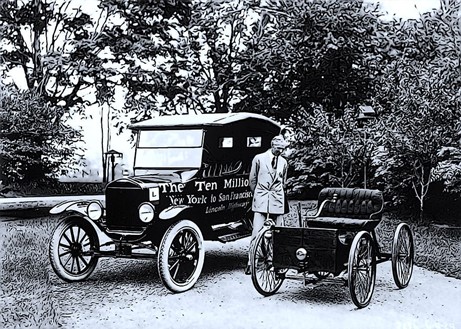What does it mean to be a leader? Drawing inspiration from the towering figures of the past who forged their paths with unwavering determination and vision can provide some answers. From politicians to inventors, these great leaders left an indelible mark on the world, imparting timeless wisdom that resonates even in the present day.
Below, Luis Chanaga takes a look into the lives and legacies of these extraordinary individuals, gleaning insights that transcend time and space, and uncovering the principles that can empower and elevate our own leadership journeys.
Abraham Lincoln (1809-1865)
Widely regarded as one of America’s greatest leaders, one of Abraham Lincoln’s most significant acts was the Emancipation Proclamation, which broadcasted a commitment to ending slavery.
It was also Lincoln who delivered the famous words of preserving a government “of the people, by the people, for the people,” during the Gettysburg Address.
Honest Abe is admired for his intelligence, eloquence, morals, and ability to unify the country during a time of crisis.
Empathy and Compassion
Lincoln was known for his empathy and compassion towards even his enemies, he understood the importance of connecting with people and seeking common ground to bridge divides.
Failure to Manage Stress
Lincoln faced enormous stress for Illinois’ poor economy, which affected his physical and mental well-being. Today’s leaders can learn from Lincoln’s breakdown – by developing healthy coping mechanisms, seeking support, and maintaining a healthy work-life balance.
Due to Lincoln’s efforts in ending the Civil War, America soon became an industrial giant, opening the doors for a technological revolution.
Henry Ford (1863-1947)
Founder of Ford Motor Company, Henry Ford was an American industrialist and a pioneering figure in the automotive industry, revolutionizing the mass production of automobiles. He introduced the Model T in 1908, turning automobiles into an essential part of modern life.
He also introduced the moving assembly line in 1913, allowing efficient production of automobiles. The accessibility of automobiles led to faster urbanization and economic growth, transforming how people lived, worked, and traveled.
Focused on Efficiency
Ford’s focus on streamlining production allowed him to increase productivity and reduce costs, utilizing optimization to achieve success.
Resistant to Change
Ford barely updated the Model T for 19 years, which led to a decline in his company’s competitiveness. Today’s leaders can avoid this by continuously assessing market trends and customer needs, then adapt products and strategies accordingly.
After the industrial age came the digital age, it opened the doors for a different kind of visionary.

Steve Jobs (1955-2011)
Co-founder of Apple Inc., Jobs’ had an ability to envision products that customers didn’t even know they wanted, which led to the creation of icons like the Macintosh, iPod, iPhone, and iPad.
The launch of the Macintosh in 1984 introduced the graphical user interface, which made personal computing more user-friendly, transforming the industry.
Through the iPod and iTunes in the early 2000s, Jobs seamlessly integrated hardware, software, and online services to create a new model for digital music distribution and consumption. In 2007, Jobs unveiled the iPhone, a device that combined a mobile phone, iPod, and internet communication, which set new standards for smartphones and transformed how we viewed and utilized technology.
Stay Focused on the User Experience
Jobs was obsessed with creating products that provided a frictionless user experience. He understood the significance of putting the customer at the center of product development.
Lack of Empathy
Jobs was known for his strong personality and demanding nature, which sometimes led to a lack of empathy towards his employees. Strong leaders actively listen to their team members, showing genuine care and consideration for their well-being.

